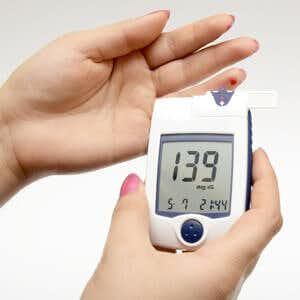
People who use insulin to control their diabetes must walk a tightrope. On the one hand, they need to keep blood sugar from soaring, since that type of hyperglycemia can damage their kidneys, retinas and other organs. On the other hand, however, they need to avoid dangerously low blood sugar episodes.
Technology Reduces Low Blood Sugar Episodes:
One way to reduce hypoglycemic episodes is with a continuous blood glucose monitor that sounds an alarm when blood sugar goes too high or drops too low. Some people with type 1 diabetes are not sensitive to the symptoms that signal the first stages of hypoglycemia. Such hypoglycemic unawareness can land people in trouble.
Researchers randomly assigned 149 individuals with type 1 diabetes and hypoglycemic unawareness to use traditional finger-stick blood sugar monitoring or to wear the continuous blood glucose monitor (Heinemann et al, The Lancet, online Feb. 18, 2018). Those wearing the machine had an average of 3.5 low blood sugar episodes a month, down from about 11 at baseline. People in the control group did not have a decrease in such episodes.
Disadvantages of Continuous Glucose Monitors:
The technology does have a few downsides. Wearing the sensor all the time may be inconvenient; the participants in this study wore it 85 percent of the time, including overnight. (That might explain how it apparently helped reduce low blood sugar episodes during sleep.)
In addition, this technology could also be costly. Insurance companies differ in how much they are willing to pay for the monitor.
In the same journal, an editorial discusses how continuous glucose monitoring is transforming the treatment of type 1 diabetes. People with type 2 diabetes who must use injected insulin for blood sugar control may also benefit from this new technology.

